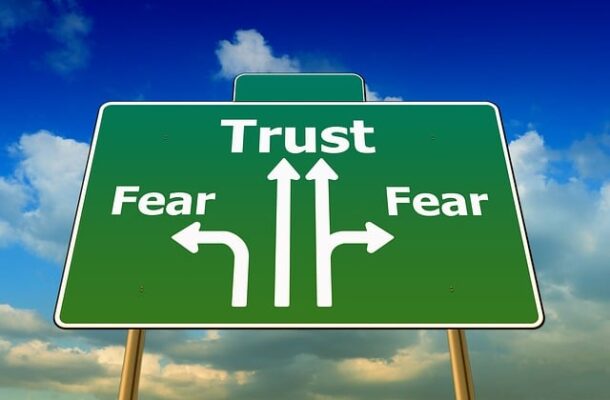Latest News
-
Sustainable development and the role of medium sized enterprises
Ulrike Schuermann | January 18, 2011According to the Global Reporting Initiative (GRI) SMEs account for about 90 per cent of businesses worldwide, employing 50 to 60 per cent of the world’s workforce. In Australia, Australian Bureau of Statistics data indicate small businesses in Australia comprise up to 89 per cent of all employing enterprises, with medium businesses making up another 10 per cent.
The SME sector is not only huge but also extremely diverse – with 60per cent of all of these businesses not having any employees – this diversity creates challenges on many levels and areas including responsible business practices, corporate sustainability and philanthropy.
-
Mixing business with family – can it work?
Philippa Taylor | January 18, 2011Family Business Australia (FBA), a non-profit organisation working with families in business, has developed a two-day course to help family members be effective directors, and understand the dynamics that can affect their judgement.
FBA, in conjunction with the leading Australian provider of family business education, the Australian Centre for Family Business at Bond University, has focused not only on business governance but governance pertaining to family involvement.
This course is designed to cover material not currently offered in Australia today. The emphasis is on balancing the needs of the family and the business when developing management and governance structures such as boards and advisory councils.
-
Fast and furious First 5000 critical in saving the planet
Ulrike Schuermann | January 17, 2011The urgency for all businesses to be economically, environmentally and socially sustainable has never been greater.
From a customer perspective; the world will be putting a price on carbon emissions and customers will prefer to do business with sustainable companies (including Government procurement) = sustainability is good for business.
-
A thought on business development
Peter Fritz | January 17, 2011I just watched The Social Network. I enjoyed the film thoroughly, and unsurprisingly, it got me thinking about successful businesses.
There are three elements you need to build a business: 1) Connect: connect to the market or in other words, find customers; 2) Laziness principle: make it easy for the customer to use your solutions, and ensure they are easier to use than existing solutions; and 3) Persevere: no business is created without perseverance.
-
Don’t bank on competition
Jost Stollmann | January 17, 2011Why business must take action against the big four. CEO of Tyro Payments Jost Stollmann on why the big banks continue to fail their customers and how constructive industry behaviour can help reform the banking sector.
The world of commerce has moved into the internet age. As customers and business owners we demand speed, efficiency and reliability in transactions which are scattered over every facet of our lives. So it’s no wonder when we depend on the major banks – which run on legacy IT systems that are more than 30 years old – we are so often frustrated or left short-changed.
-
UPDATE: 11 crucial consumer trends for 2011
First 5000 | January 12, 2011January 2011, Another new year, another roller coaster of threats and opportunities. We tend to focus on the latter as, amidst currency wars and defaulting nations, there are more opportunities than ever for creative brands and entrepreneurs to deliver on changing consumer needs. From Brazil to Belgium. No rest for the wicked!
Trendwatching’s brief overview of the 11 consumer trends for 2011:
1. Random acts of kindness
In 2011, expect companies to monitor consumers’ public moods and act upon them with random acts of kindness…marketing may never be the same 😉 Read more »
2. Urbanomics
Are you ready for hundreds of millions of more daring, more experienced consumers? Oh, and that’s just one side effect of rapid global urbanization… Read more »
-
Why Gerry Harvey is wrong
Patrick Callioni | January 11, 2011Gerry Harvey should be careful what he wishes before crying out for a “level playing field”.
Today we will consider a significant public policy issue that affects all of us: competition in the retail sector. Gerry Harvey and other large Australian retailers are arguing that the Australian Government should impose the GST on purchases made online from overseas suppliers, to create a level playing field for Australian retailers.
Gerry Harvey has gone so far as to label Australians who shop online as “un-Australian”, using emotional hyperbole in a way that many have found offensive, as shown here. I am not going to get emotional about this – I will consider the facts.
-
Beef up your managerial muscles
Virginia Harrison | January 11, 2011http://www.carnegiemg.com.au/
THE strategy used to get a teenager to clean their room might not be so persuasive in the boardroom. Yet executive mentor Kayley Liddle often sees managers fall short by failing to distinguish between worlds – just one area where a corporate coach can help sharpen a professional’s edge.
“Executive coaching helps individuals stay focused on their goals a lot quicker, and a lot more effectively than if they were doing it on their own,” Ms Riddle from Carnegie Management Group says.
“People ask if I had a coach what would I get? It’s a very difficult question to answer, I ask what would you like to get, what would you like to achieve?”
-
Trend alert: business bait for innovative thinkers
Virginia Harrison | January 10, 2011Keen to step up your entrepreneurial efforts in 2011 but not sure where to start?
A new book by businessman and technology forecaster Dr John. H. Vanston might help you along that path.
MINITRENDS sketches out nine key money-making opportunities that will emerge over the next few years.
Rather than trends that will shape the way we do business, Vanston has identified trends individuals and businesses can capitalize on, and turn into profit-making ventures.
“Minitrends are of a scope and importance to offer attractive opportunities to individual entrepreneurs, decision-makers in small and mid-size businesses, innovative thinkers in large companies, and adventuresome investors,” Dr Vanston says.
-
The Pacioli-Fritz accounting system: bringing intangibles to light
Peter Fritz | December 24, 2010Since the so-called father of accounting, Luca Pacioli published his book Summa de arithmetica, geometria, proportioni et proportionalitain Venice in 1494, in which he describes the method of bookkeeping that Venetian merchants were using, known as the double-entry accounting system, much has happened in the world of commerce and economics.
Relatively speaking, not much has happened in the double-entry accounting system.
-
All I want for Christmas…
Natalie Susman | December 22, 2010Give your clients a really great Christmas gift that will help them remember you all year round – and you could be giving someone a job too!
It’s that time of year again. When the streets become decorated in a sea of tinsel and holly and you can’t walk past a retail outlet without hearing a rendition of Jingle Bells.
It’s also that time of year when businesses like to show their appreciation of their clients and staff. Conscientious staffers frantically search the internet for that perfect gift… the one that doesn’t take a lot to coordinate, that falls within budget and might just even bring a smile to the faces of those that receive it.
-
Uncategorised
When personal problems become workplace issues
Virginia Harrison | December 21, 2010Is a moody teenager at home making your workplace less productive? It might seem trivial, but real-life problems can’t always be fenced off from the office. Here organisational psychologist Leanne Faraday-Brash offers tips to identify and handle non-work stresses that impact the job.
The Principal of Brash Consulting, Faraday-Brash has spent the past 2 decades advising mid to large organisations on leadership and change development.
Relationship dysfunction, family breakdowns and challenges with children are some of the common issues she sees spill into the workplace.
-
Paid maternity leave just around the corner…are you confused?
Matthew Tukaki | December 20, 2010It’s time to make sure you understand and are prepared for the introduction of the paid parental leave scheme.
It strikes me that there is a degree of confusion in the business community about a fundamental series of changes that will come into force from 1 January 2011. In the main, those changes relate to the introduction of the Government’s Paid Parental Scheme.
This confusion has been evident in a series of workshops that I have been running around understanding the impacts of legislation on employers and hiring managers.
-
Mid-size businesses should factor in factoring
David Hechter | December 14, 2010In today’s credit restricted economy, it’s more important than ever for medium-sized businesses to know what forms of financing are available to them.
Medium-sized businesses are different, but like companies of all sizes they have the challenge of chasing up slow payers.
In fact, because they are more likely to be providing services to large companies, the mid-size business is feeling this pain more acutely.
The global financial crisis and the rise in funding costs has prompted banks to protect their internal balance sheets more than ever, and are tightening up their credit criteria for businesses of all sizes. To ensure their success, mid-size growth companies may need to rely on alternative forms of financing, like accounts receivable factoring.
-
Last minute goodwill gift guide
Virginia Harrison | December 14, 2010
Despite jitters from retailers that Christmas spending will be down this year, Australians are expected to fork out nearly $40 billion dollars this festive season.
The estimate from the Australian Retailers Association also found that in the 6 week lead-up to Christmas, we’ll spend $3.4 billion in department stores and nearly $3 billion on apparel alone.
Pro-Bono Australia is helping you direct some of your festive spending to a good cause. Use its Ethical Giving Guide to find goodwill gift options and ways to support not-for-profit groups this Christmas.








